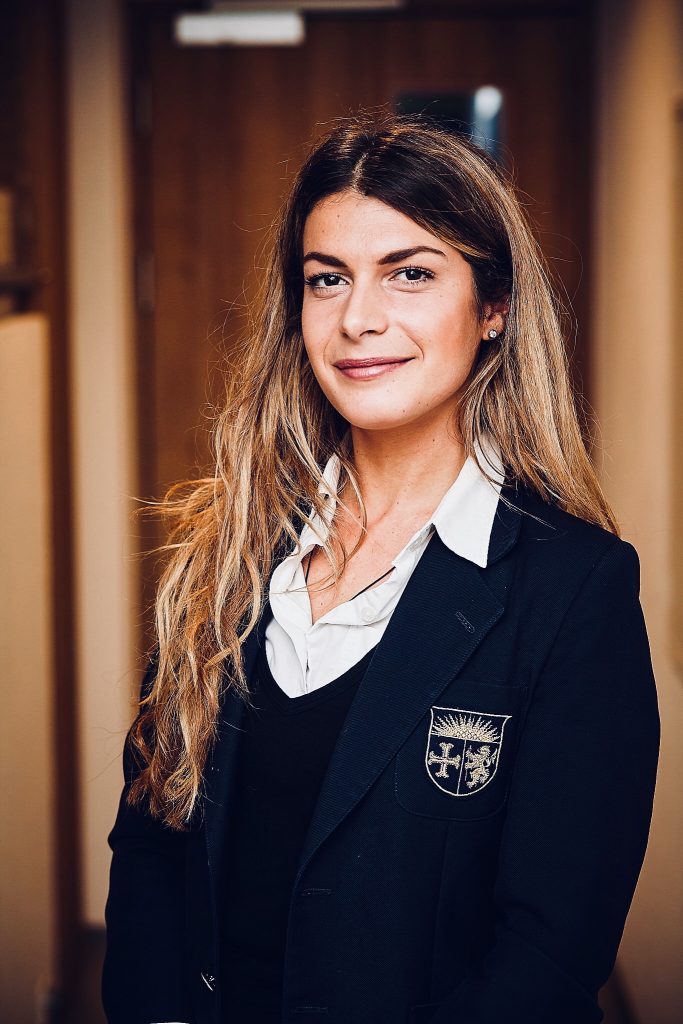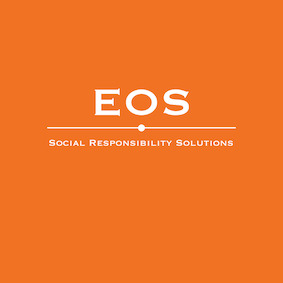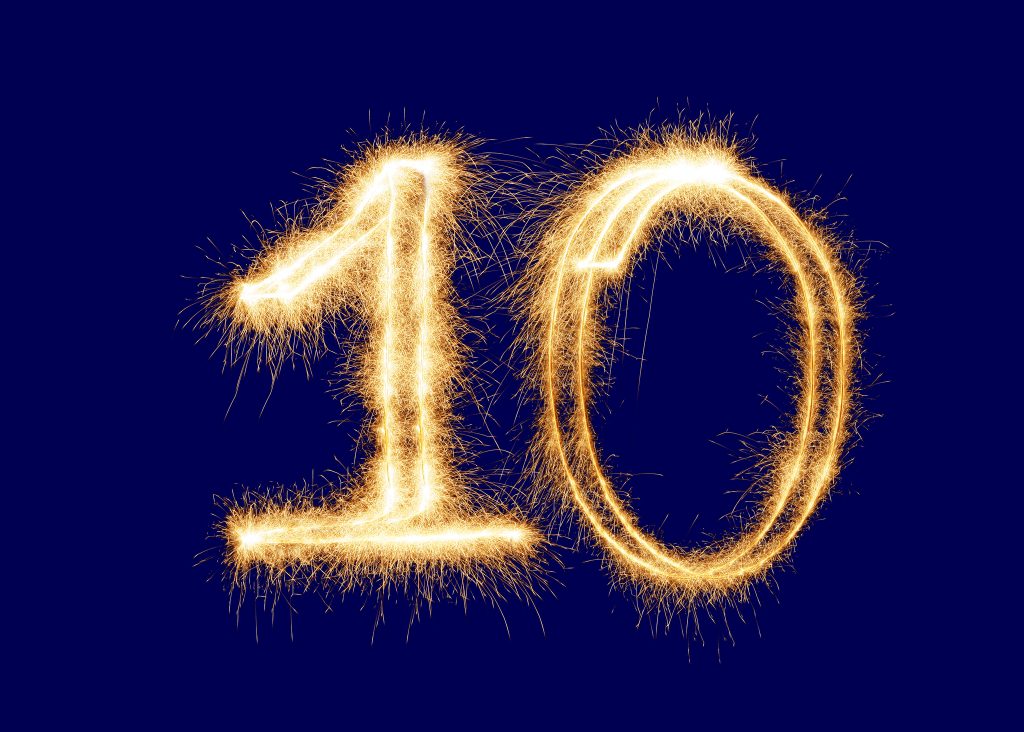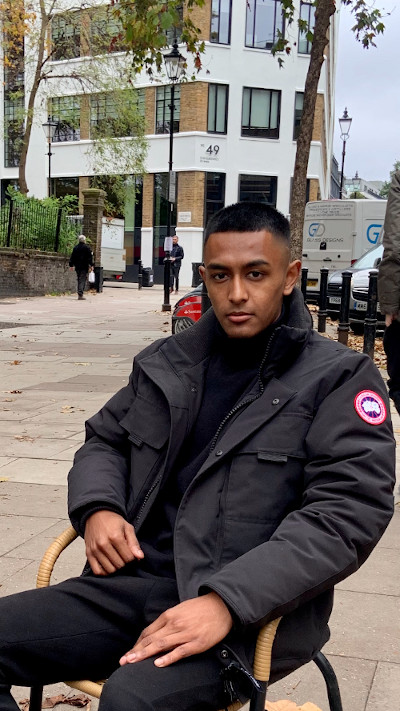Human rights, international law and social responsibility: An interview with City alumnus Gaia Barcilon
Lawbore journalist Abdullah Al-Khayr speaks to one of our alumni about her journey since leaving City…
Gaia Barcilon is the CEO of EOS Social Responsibility Solutions – a start-up she founded in September of last year – specialising in the education of companies on the integration of human rights while promoting the core values of corporate social responsibility. After graduating from City, University of London in 2015, Gaia went on to study her Masters at Duke University. Barcilon boasts experience as a New York State Attorney as well as a lawyer for the World Health Organisation. This interview explores Gaia’s education as well as her later career, and how both led to the development of her company in the midst of the ongoing pandemic.
Could you tell us a bit about your background?
So, I am half Spanish and half Italian and I am fluent in Italian, French and Spanish. I spent the first 15 years of my life in Italy, where I studied at the International School of Milan. At 15 years old, I moved to College Alpin Beau Soleil (a boarding school in Switzerland) to focus on my studies. Here, I met people from all over the world. I then moved to the United Kingdom and spent 3 years studying my LLB at City, University of London, after which I studied for my Masters at Duke University in New York. I specialised in human rights, humanitarian law, laws of War specialising in non-state actors/terrorism.
After graduating from my LLM, I qualified as a state attorney in New York and I am proud to say that I was the youngest attorney in New York. I then moved back to Italy and worked in a law firm for a year – however, I didn’t enjoy the atmosphere and went on to study another 2 years for a Masters in Geneva. While doing so, I worked on a project with the World Health Organisation called the ‘Global Partnership to End Violence Against Children’. I must thank my employers to have given me independence at such a young age. I gained invaluable experience working with diplomats and people from different backgrounds, as it gave me perspective. I then worked for a year and a half at a firm in security and human rights, after which I set up my own company in September 2020. I would say that I like challenges. Throughout my whole career, I was never in the comfort zone and I always tried to either change country or find something new to stimulate myself.
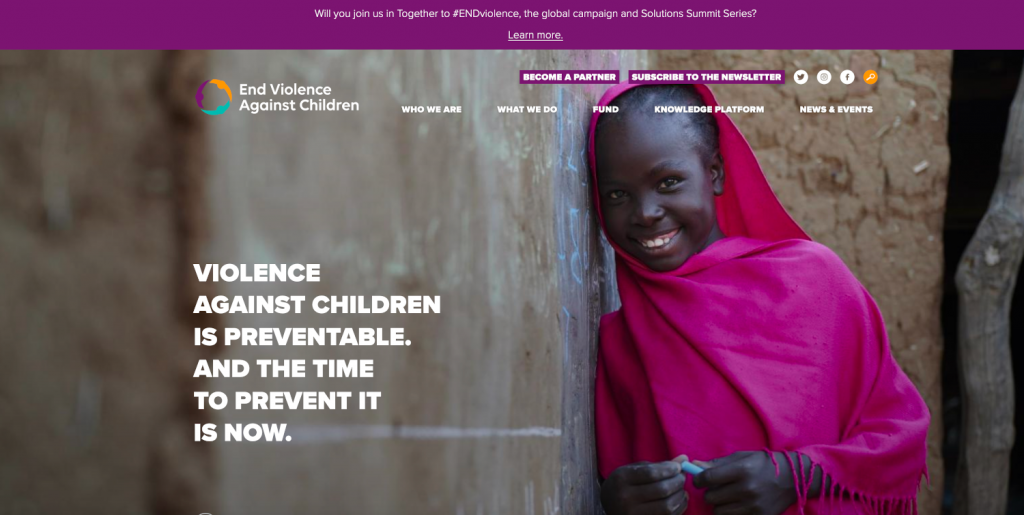
What three qualities/attributes would you say are your strengths and how have they helped you to get where you are today?
A word that best defines me is international and I truly consider myself to be a citizen of the world. Such an attribute unlocked a certain open-mindedness to a plethora of opinions and ideas different to my own. I am also dedicated and make sure to do everything to the best of my ability. Lastly, I am a risk taker – I like challenges and because of my devotion, when I take a risk I go for it with full steam.
What attracted you to study a law degree at City? Did your overall experience at City match your first impressions?
I loved the international atmosphere at City and how diverse the student population was. I must also point out that when I first started law, I was clueless. Yet the staff at City including tutors, lecturers and professors were always supportive. I took a particular interest in Dr Mauro Barelli, an international law professor at City, and wanted to follow his path. So much so that in my 3rd year, I chose public international law and human rights as an elective module which was taught by Dr Barelli. I was nothing short of fascinated by the laws governing relationships between states.
I suppose what makes City stand out to me is how the student-staff relationship is sustained even after graduating. In particular, Dr John Stanton, City’s public law lecturer, helped to introduce EOS to City Law students.
What was it like studying at the New York in the US legal system compared to studying English law?

I must say that there are more opportunities to practice in the US as opposed to UK where study is more theory-based. For example, at Duke, I was placed with a client after my first week, to talk about a specific aspect of human rights. Both styles of learning are very useful – you need theory of course as you need to study so you know what you’re talking about. BUT when practicing, there are more opportunities to learn, be exposed to new ideas and make first-hand observations on where the system works and where it doesn’t. Most of all, you learn about yourself – I was the youngest on the LLM and being amongst more experienced lawyers helped advance my skills. Having said that, I wouldn’t have succeeded in my LLM had it not been for the solid theory of law I learnt in my LLB at City.
How has the past few months with EOS Social Responsibilities Solutions been in 5 words?
Challenging. Tiring. Innovative. Inspiring.
Most of all, I feel positive that there can be change – especially after recent RAISE (Raise Awareness on International Standards in Education) events, it felt good that so many people at City showed an interest in human rights. (Ed. note – read a review of the RAISE series of workshops at City in an earlier post).
Why did you decide to set up RAISE? What do you hope to achieve through educating students about human rights?
I wanted to change the perception of human rights as a taboo as for too long, companies have faced very little scrutiny over human rights abuses and have long gotten away with it. The issue is that a lot of companies and even in-house legal teams aren’t knowledgeable about human rights, which is partly why companies don’t respect human rights as they should. Most importantly, by educating students about human rights, it has a domino effect on society.
Given your experience, what is one piece of advice you would give to the Gaia Barcilon of 10 years ago?
I would say to continue believing in yourself. You will have low moments, high moments, feel indestructible and feel like a misery and a failure, all at once. Regardless, keep going – when you have a dream, push towards it. Have different plans from A-Z. If that’s your goal, there is no reason as to why you shouldn’t achieve it.
Where do you see yourself in 10 years’ time?
This is a difficult one. I hope my company will be big enough to the extent where we can connect students with companies – essentially creating an internal LinkedIn with people who are certified by us in terms of human rights. In 10 years, we will have a name to which we have leverage in the international community and our company will have a hand in seeing a more ethical world.
What concrete actions can companies take to follow human rights?
Where there is a lack of knowledge, consult experts for support in implementing human rights policies. Besides, when you have an electrical problem, you call your electrician…accordingly, the same should be done with human rights. It is not all doom and gloom, so to speak. We do see a movement within big companies creating human rights departments within their consultancy – BUT it is difficult to have a human rights perspective in companies without ignoring conflict of interest. I believe there could be some sort of international treaty on human rights based on general consensus amongst nations.
Should we hold large corporations such as Facebook and TikTok to lesser standards of states or the same, or perhaps higher? How can we hold them to account?
In my opinion they all should be liable in the same manner, and the obligations that a State has should be level with companies. Like the State, companies are entities that emerge in our daily lives. If an international treaty comes into force, States will feel more pressured to enforce corporate social responsibility provisions to create more robust protection of human rights by companies. More awareness can be raised through social media as in the past, this has created bad PR for companies with questionable human rights practices.
How do you think Covid-19 may impact businesses’ human rights standards e.g. making workers come into work or working overtime to get business back after lockdown?
The main takeaway that we can all agree on from the past year is that we are all inter-related – my health is as important as my neighbours etc. We may well see an improvement in international and state standards relating to working conditions in order to avoid another pandemic. However, with more outsourcing i.e. working from home this could open a new ground for human rights violations where such employees may feel overworked.
*I would like to personally thank Gaia Barcilon for agreeing to this interview and making time in her personal schedule to speak to me. I would also like to thank our editor, Emily Allbon for giving me this opportunity.
Thanks to Abdullah Safwaan Al-Khayr for this wide-ranging, fascinating interview. Abdullah is a second year law student at City, University of London. He joined the Lawbore team this academic year and is excited to showcase his interest in current affairs as he believes such awareness is central to pursuing a legal career in the future.

